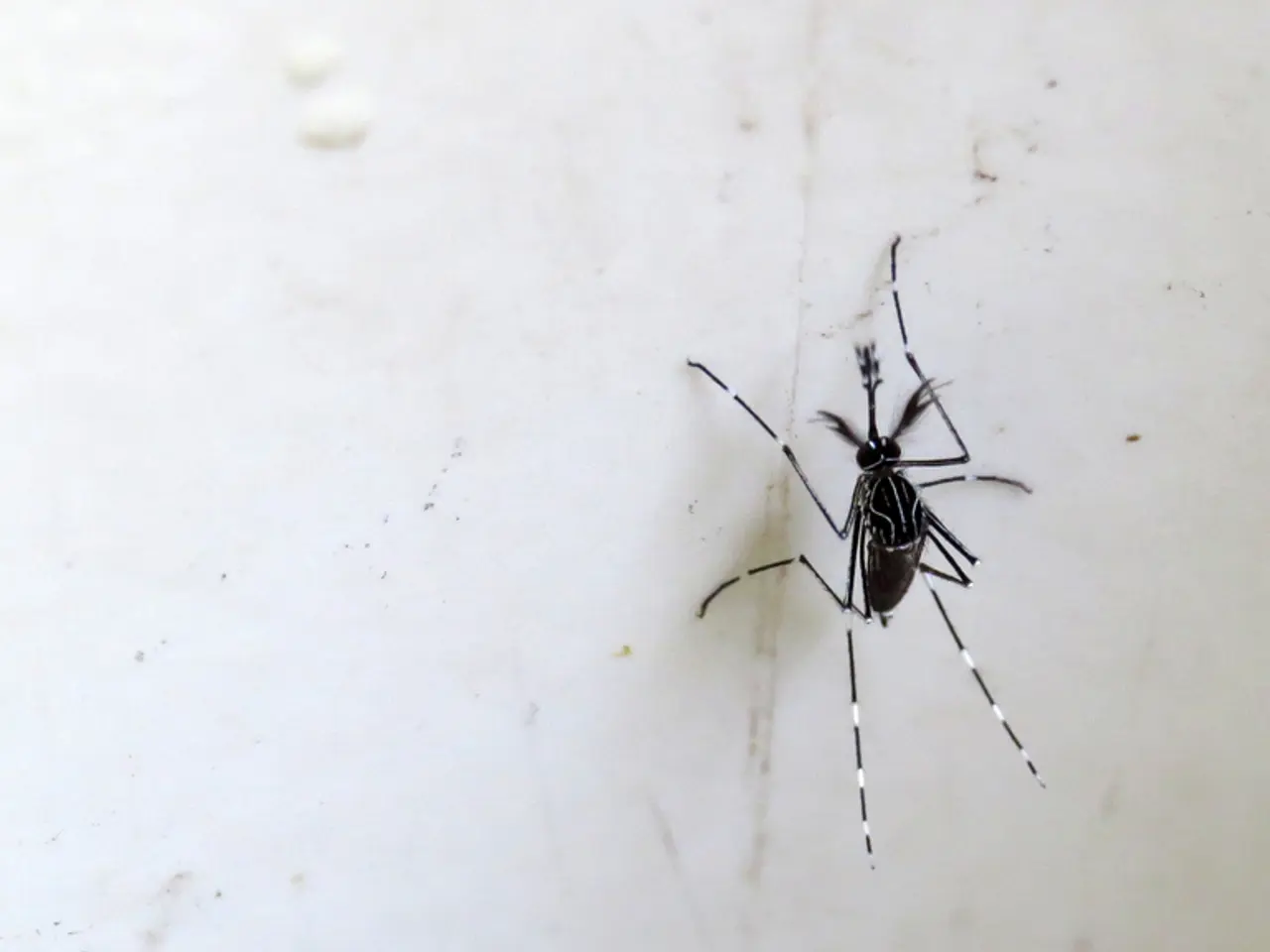Increased Imported Chikungunya Cases Prompt Traveler Alerts from the UK
In light of increased travel-related cases of Chikungunya and the first reported cases of the Oropouche virus among UK travelers, the UK Health Security Agency (UKHSA) has issued new prevention measures for travelers visiting high-risk areas.
For those traveling to regions with active Chikungunya outbreaks, vaccination options are now available. Two vaccines, IXCHIQ and Vimkunya, have recently been approved in the UK. IXCHIQ is suitable for immunocompetent individuals aged 18-59, while Vimkunya is recommended for individuals aged 12 and over. These vaccines may be offered to travelers, frequent or long-term travelers to such areas, and laboratory staff working with the virus.
Given that both viruses are mosquito-borne, avoiding mosquito bites remains critical. This involves using insect repellents, wearing long-sleeved clothing, and ensuring accommodation is mosquito-proof, especially in endemic areas such as Sri Lanka, India, Mauritius for Chikungunya, and Brazil for the Oropouche virus.
The UKHSA’s Medical Entomology and Zoonoses Ecology group monitors mosquito species and advises the government on public health measures. While the Aedes mosquitoes responsible for Chikungunya transmission are not established in the UK, climate change may increase future risk.
The UKHSA Travel Health Team collaborates with the National Travel Health Network to provide updated guidance for health professionals and travelers. This guidance emphasizes awareness of active outbreaks and symptom monitoring after travel.
As there are no vaccines or specific treatments currently for the Oropouche virus, the prevention strategy primarily focuses on vaccination for appropriate candidates and strict mosquito avoidance. Given the recent first UK reports of Oropouche virus in travelers returning from Brazil, heightened awareness and mosquito bite prevention are essential.
Serious complications from Chikungunya are rare, but the disease can be fatal in very young or older people, or those with underlying health conditions. Joint pain from Chikungunya can last for months or even years in some cases. The symptoms of Chikungunya include a sudden fever and joint pain. Most people with Chikungunya recover within two weeks.
The oropouche virus, an emerging disease, has been detected in the UK for the first time. All cases of the oropouche virus detected in the UK were linked to travel from Brazil. The UKHSA has urged people to take precautions against mosquito bites while on holiday.
In summary, the UKHSA’s current approach includes vaccination for suitable candidates, mosquito bite prevention, surveillance and control, and travel advice based on the latest data showing increased travel-related Chikungunya cases and new Oropouche virus cases among UK travelers.
- The UK Health Security Agency (UKHSA) recommends vaccination for travelers visiting regions with active Chikungunya outbreaks, with options including the recently approved vaccines IXCHIQ and Vimkunya.
- Due to both Chikungunya and the Oropouche virus being mosquito-borne, avoiding mosquito bites is crucial, which involves using insect repellents, wearing long-sleeved clothing, and ensuring accommodation is mosquito-proof.
- As there are currently no vaccines or specific treatments for the Oropouche virus, mosquito avoidance is the primary prevention strategy, and heightened awareness is essential for those traveling to high-risk areas like Brazil.
- The UKHSA focuses on monitoring mosquito species and advising the government on public health measures, while the Aedes mosquitoes responsible for Chikungunya transmission are not established in the UK, climate change may increase future risk.
- In addition to providing guidance for health professionals and travelers, the UKHSA collaborates with the National Travel Health Network, emphasizing awareness of active outbreaks and symptom monitoring after travel to maintain a healthy lifestyle while traveling and prevent chronic diseases like Chikungunya.




